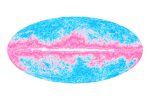Hyperallergic: Carter Ratcliff

Something like magnetic attraction joins certain descriptions to certain artists. Thus “gestural painter” attaches to Jonathan Feldschuh with automatic ease. How else would you label a painter whose images are the swerving, skidding traces of a wide brush wielded with virtuosic vitality? Feldschuh is a gestural painter, no doubt, and yet this readymade phrase is laden with implications that can lead us astray. Not every geometric abstractionist in the years between the World Wars was a utopian, like Piet Mondrian, nor do brushy bursts of energy always put personality on display, as they do in the early paintings of Joan Mitchell. When Feldschuh sends his brush careening over the surface, he is reaching for something beyond himself.
Interview: Fran Kaufman and Jonathan Feldschuh
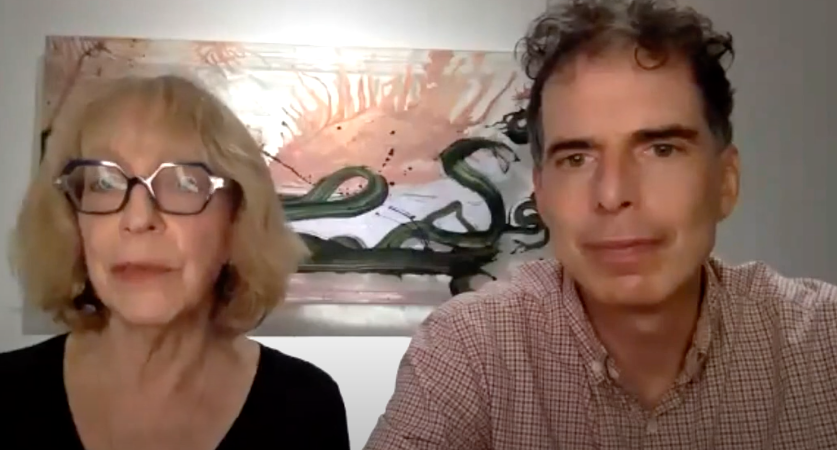
https://youtu.be/VgqzCOz-UdU Jonathan Feldschuh talks with curator Fran Kaufman, recorded from Zoom call 11/3/2021 at the 1GAP Gallery, during the show Dynamic Equilibrium Details of this exhibition at 1GAP Gallery
Fran Kaufman: catalog essay for “Dynamic Equilibrium”
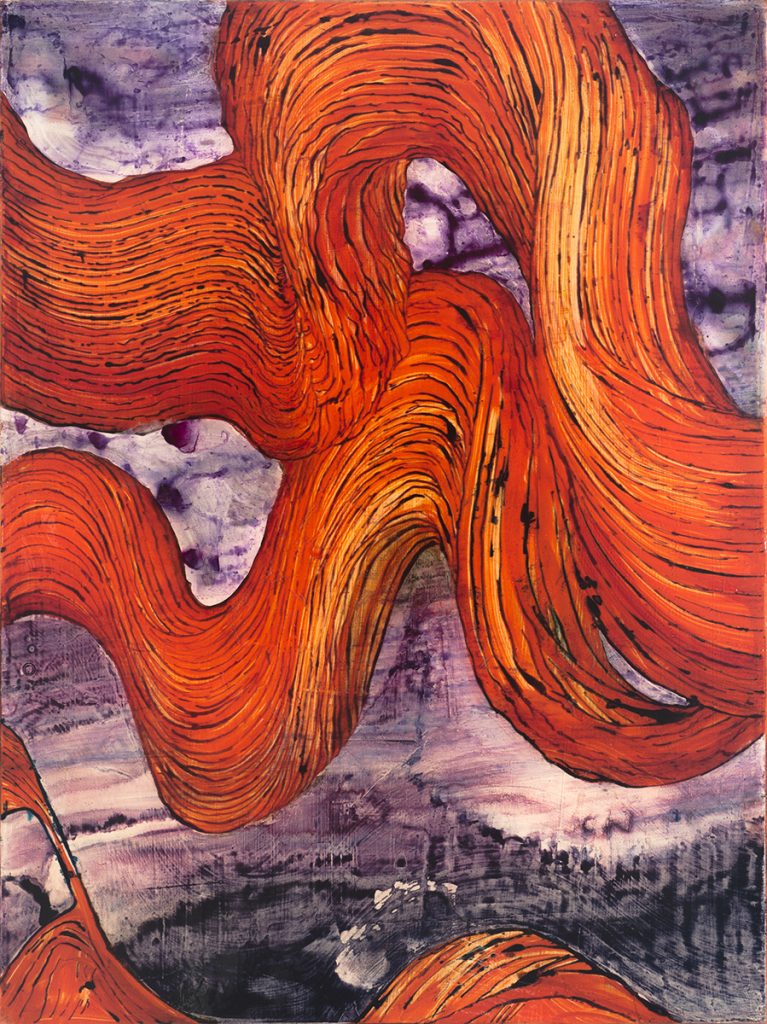
Imagination is more important than knowledge. For knowledge is limited to all we know and understand, while imagination embraces the entire world.
—Albert Einstein
Walking into Jonathan’s studio one feels an immediate flow of energy: the colors are intense, the strokes are bold, there is an immediate sense of purpose and exploration. Hung high on the non-working wall are two dream-like paintings of the Large Hadron Collider at CERN in Switzerland, a miraculous feat of cooperative science that contains the world’s largest and most powerful particle accelerator. Facing them are large images painted on mylar inspired by particle theory, a dynamic imagining of the interactions of minuscule particles rooted in the specific mathematical formulas that govern their actions.
Dynamic Equilibrium – 1GAP Gallery, Brooklyn
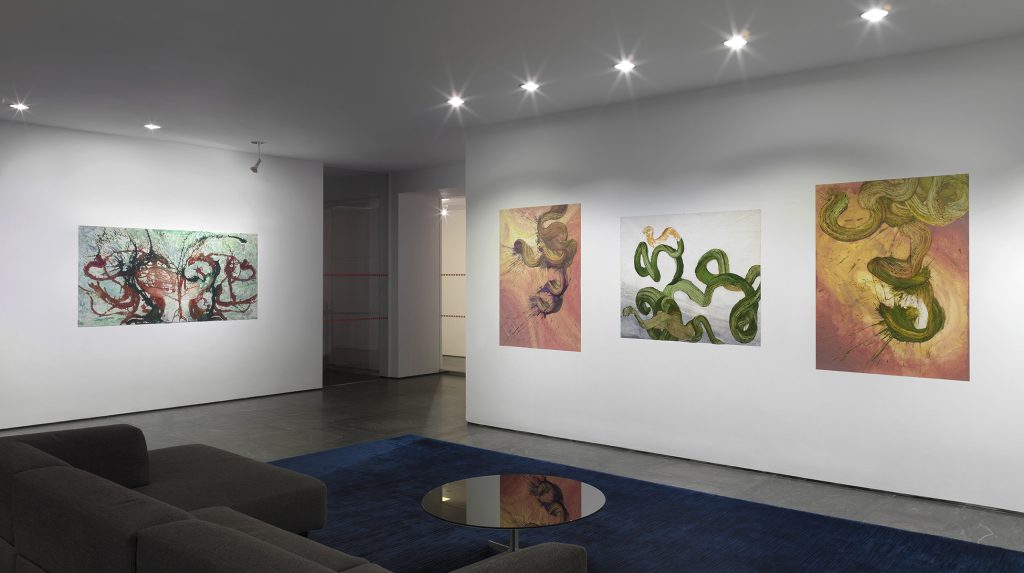
Solo show at the 1GAP Gallery is scheduled for September-December 2021. Curated by Fran Kaufman.
Citizen/Artist – curated by Julia Buntaine-Hoel
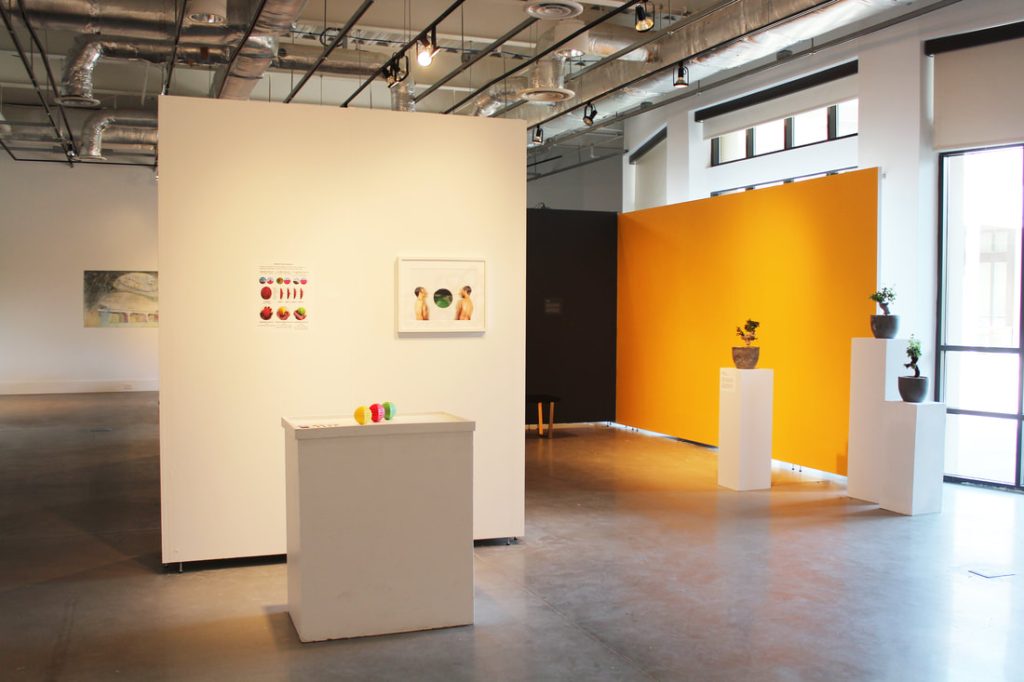
The term “citizen scientist” has become increasingly popular with the rise of DIY and crowdsourcing culture, where volunteer citizens can expand the capabilities and reach of scientists for the creation of larger and more comprehensive studies. Thanks to new apps and web-based platforms, the ability to participate in science is available outside of academia and industry. Science can now be done by a 14 year-old on her laptop, or an 80 year-old in his backyard garden. Citizens from all over the world are helping to solve some of our biggest and most complicated problems. And some of these citizen scientists, are artists.
Resonators – 524W26 Gallery
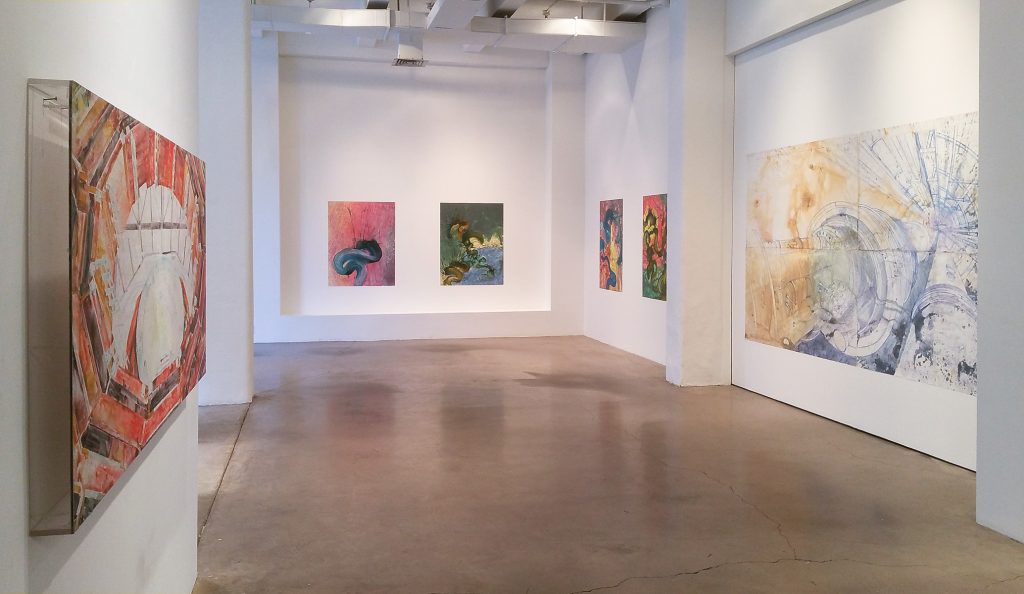
Particles and Colliders
The show Resonators at 524 Gallery in Chelsea provides the first opportunity for me to present works together from two series that deal with high-energy physics. My new series Particles is an investigation into the interactions of subatomic particles inside an accelerator. It follows my Large Hadron Collider series of paintings of the machinery of the largest accelerator in the world, the LHC at CERN. The collider paintings were most recently exhibited at the National Academy of Sciences in Washington, D.C. In the new series, I am attempting to depict the super-small world of high energy collisions, filled with virtual particles, quantum loops, and hadronic jets.
Julia Buntaine – Visualizing science: bridging the science-art gap
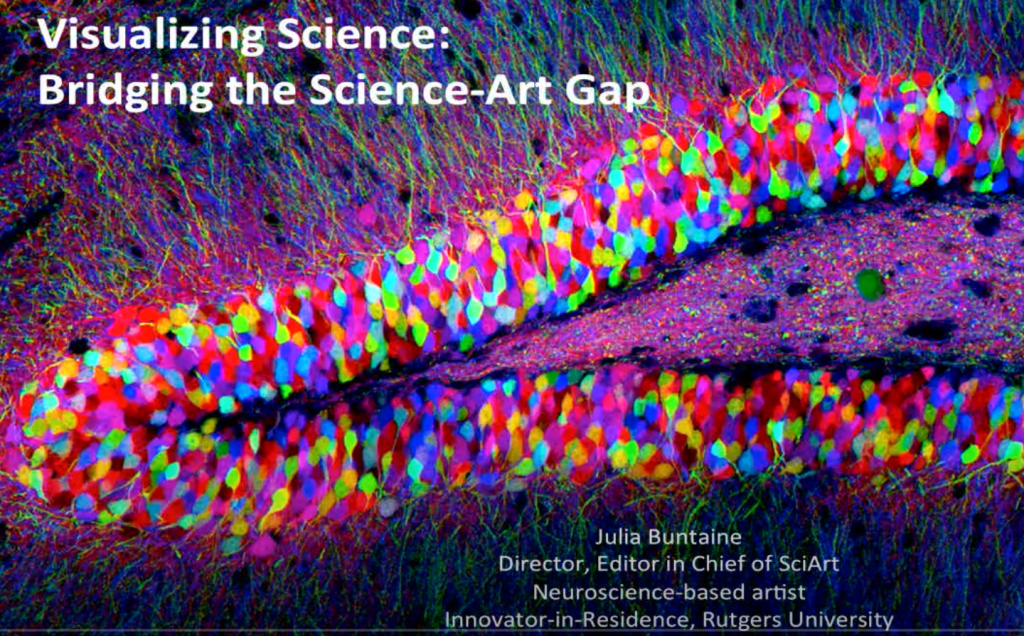
Julia Buntaine, editor of SciArt in America, discussing the work of various artists working to combine art and science
PNAS Journal – Science and Culture: Modern “cathedral” offers artistic inspiration

Grandeur is often associated with feats of architecture and engineering. It’s not often applied to scientific experiments. One notable exception is the Large Hadron Collider (LHC), a particle accelerator and collider complex at CERN, the European Organization for Nuclear Research, outside Geneva, Switzerland. Artist Jonathan Feldschuh was so fascinated with the massive instrument’s physical beauty that he created a series of more than 40 paintings detailing the LHC’s various angles, patterns, and vantage points. “I wanted to capture the grandeur,” he says, “in terms of the intellectual project and the physical structure.”
Jonathan Feldschuh – Large Hadron Collider
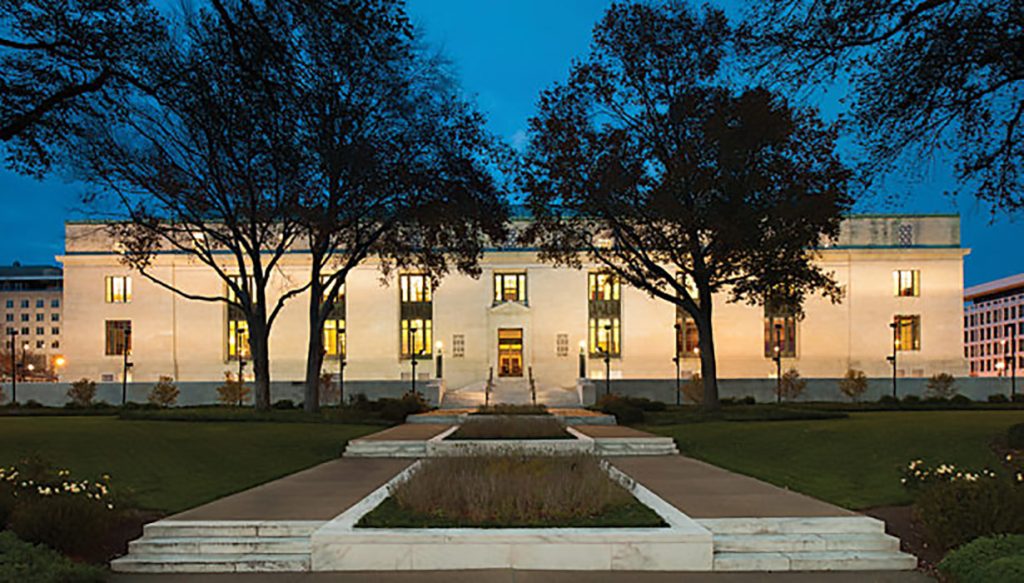
solo show at National Academy of Sciences, Washington DC, with subsequent travel to Keck Institute, Washington DC; Janelia Gallery, Ashburn Virginia (2017); Howard Hughes Medical Institute, Bethesda, MD (2017)
Dialogues: Drawings and Works on paper – Satellite Contemporary
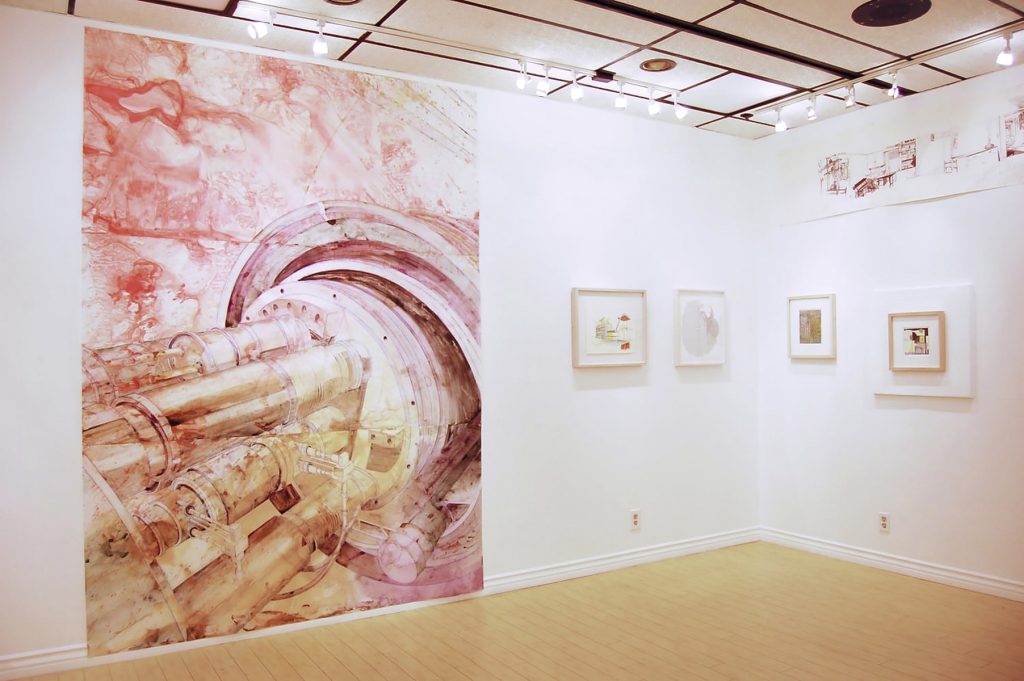
group show: Curated by Trevor Richardson at Satellite Contemporary, Las Vegas
